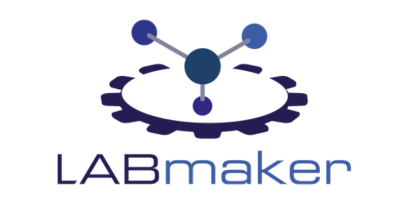pyControl - Mouse Behaviour Box (Complete Set No 1)
Founding developer Thomas Akam
$990.00 USD
Ready to go Mouse Behaviour Box
pyControl uses pyboard microcontrollers running MicroPython to control behavioural experiments. Current developers are Thomas Akam and Andy Lustig, based at Oxford University and Janelia Research Campus.
3 pokes with LED, 2 reward valves, a speaker, and the Micropython control board
pyControl provides a clean, intuitive and flexible Python based syntax for specifying behavioural tasks. Many experimental protocols have been developed and tested, and are freely available.
Each experimental setup is controlled by one control board with a pyboard microcontroller (breakout board). This is connected to a PC via USB. Multiple experimental setups can be connected to a single computer and run in parallel, using a graphical user interface designed for efficiently running high throughput behavioural experiments. Further peripheral boards connected to this microcontroller board are used to construct the behavioural setups.
CONTENTS OF THE KIT
The Mouse Behaviour Box is a ready-to-go experimental mouse behaviour setup consisting of an experimental chamber with three nose-poke ports, each with stimulus LED and IR beam, plus a speaker controlled by an audio board, and two solenoid valves for liquid reward delivery.
It includes all materials for assembly, including the liquid reward valves with tubes. Once assembled and connected to a PC, you are ready to experiment.
It includes:
- 1x Mouse experimental chamber (12x12cm floor space)
- 1x Breakout board with MicroPython control board (MicroPython pyboard v1.1)
- 3x Poke assemblies for liquid reward with stimulus LED (mouse)
- 2x Lee solenoid valves with tubing for liquid reward
- 1x Audio board
- 1x speaker with 30 cm cable
- 1x 12V power supply (3A) with four international wall adapters
- 4x ethernet cables (2 meters each)
- 1x micro USB cable (2 meter)
- 1x extra behaviour box lid with hole for use with tethered animals
- all assembly materials and hex keys
Breakout Board with Micropython control board
The pyControl Breakout Board forms the core of each pyControl hardware setup. It interfaces a Micropython microcontroller with a set of 6 behaviour ports, 4 BNC connectors, indicator LEDs and user pushbuttons. Many such Micropython breakout boards can be controlled from a single computer via USB.
The breakout board's behaviour ports are then connected to pyControl peripherals and/or accessories.
pyCONTROL PERIPHERALS
These peripherals are also available as Add-ons to the Behavioural Box:
- Breakout Board
- Audio board
- LED driver
- Stepper driver
- Lickometer
- Rotary encoder board
- Port adapter
- Audio player
- Port expander
- Nose Poke with LED
- Pass through adapter
All peripherals must be connected to the breakout board using an ethernet cable. Some require an extra power supply.
pyCONTROL ACCESSORIES
pyControl is in daily use in laboratories around the world and has run many thousands of hours of behaviour experiments. pyControl continues to be developed by researchers at Oxford University and Janelia Research Campus, and enthusiasts in other laboratories. More information about programming tasks can be found here, hardware documentation is here.
PUBLICATIONS
Akam T, Lustig A, Rowland J, Kapanaiah SK, Esteve-Agraz J, Panniello M, Marquez C, Kohl M, Kätzel D, Costa RM, Walton ME (2021). pyControl: Open source, Python based, hardware and software for controlling behavioural neuroscience experiments. BioRxiv
Kapanaiah SKT, van der Veen B, Strahnen D, Akam T & Kätzel D. (2021) A low-cost open-source 5-choice operant box system optimized for electrophysiology and optophysiology in mice. Scientific Reports














